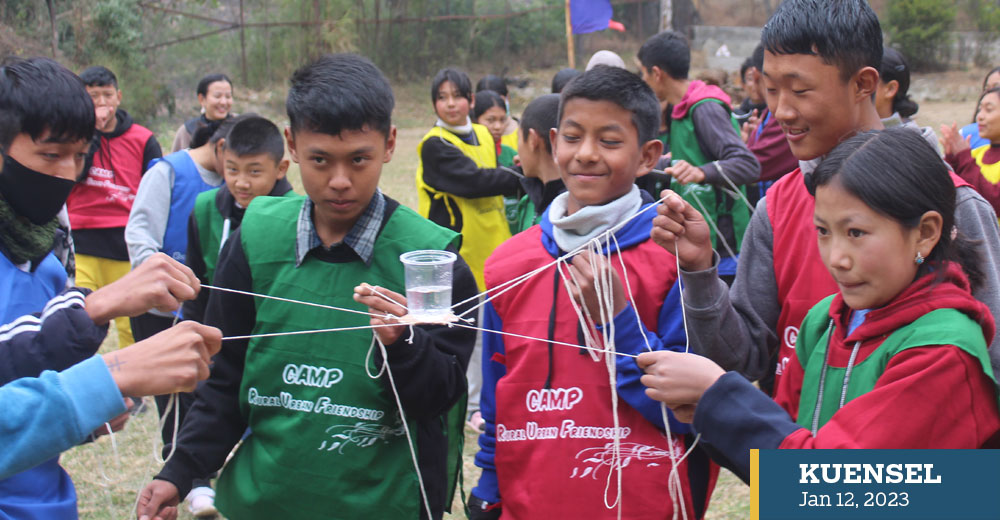YK Poudel
The eighth annual Rural-Urban Friendship camp, for the first time, included several children with disability as participants.
Five campers with disability from Draktsho East and Wangsel Institute for the Deaf participated in the recent 10-day camp at Khoma in Lhuentse among 88 campers from rural and urban areas, aged between 6 and 18.
The campers were from all across the country, including the southern Lhop villages and the highlands of Merak, Sakteng, Laya, Lunana, and Lingzhi.
Ugyen Penjor from the Wangsel Institute for the Deaf was among them.
Camp RUF is an educational recreation camp in a rural setting for school-going youth across the country through cultural and experiential learning.
According to Ugyen Penjor, such camps provide people with disabilities and others, a safe environment for learning without discrimination. “Everyone is treated equally irrespective of where they come from and learn the values together.”
He said, “Initially, I was not confident and doubtful about how to communicate with the rest. However, during the camp, many came forward to communicate with me and became my friends. I could teach them the Bhutanese Sign Language that helped me stay engaged with others.”
Sonam Jurmi, a camper from Draktsho East said that although he did not learn as much as other campers due to his disability, he was confident and learnt at his own pace.
Kinley Ningtop Wangyal, 6, a camper from Thimphu said that he feels more confident after the camp. “I made new friends at the camp and learnt to communicate with a few sign languages.”
Another camper, Ugyen Tshomo said that she learnt how to communicate with children with disability as they were taught about sign language. “The camp helped me understand the cultural diversity among the campers.”
Dawa Zam, a mother, said that such camps are good for engaging children, especially during vacations. “It fosters a sense of community vitality and a willingness to help others through experience beyond the classroom learning.”
Rinchen Wangmo, a camp facilitator, said that the camp was experimental and not limited to children who have been getting such opportunities but also to children with disability who do not get such opportunities.
“The program was customized to cater to the needs of campers and make it socially inclusive,” she said.
According to the Camp Director, Namgyel Wangchuk, the camp is designed in a way that children get to experience practical knowledge in a rural setting with “friendship as its key.”
Namgyel Wangchuk said that every year there used to be a “Camper of the Year ideated by the Prime Minister for the best-performing camper who used to get financial assistance as well as partial assistance for the camp.” However, in absence of financial assistance from the government, the title was not provided this year.
The programme brought together over 800 students from all over the country since it began in 2014.
Education Beyond Schooling was a project from the Chevening Alumni Programme Fund with camp RUF with a focus on four thematic programmes: Media Literacy, Cyber Security, Entrepreneurship, and Climate Change.


